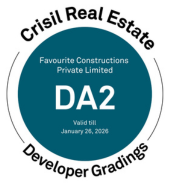Important Real Estate Terms You Must Know Before Investing in Property
Post by : favouritehomes
Real estate is a lifetime asset which most people end up investing in at some point in their life. It has always been the most-preferred choice of investment due to its non-volatility and stability. However, before investing in any real estate, you need to educate yourself against some of the terminologies you will come up against when doing your homework regarding investment options.
Here’s a look at a few of the common terminologies you will need to know when looking to invest in property:
EMI
Also known as Equated Monthly Instalment, it refers to a fixed payable amount by the borrower to the bank servicing your home loan every month. EMI is calculated on the basis of the loan amount, loan amount, age, etc.
Credit Score
Also know as the CIBIL score, it refers to the buyer’s creditworthiness and eligibility to repay the home loan. A credit score of 750 or higher makes you more creditworthy to the loaner bank.
Carpet Area
This refers to the area within the walls of the apartment or villa. It is exclusive of the verandah area, balcony or terrace areas and only includes that part of the home within the walls interiors where you can lay a carpet.
Built-up Area
This refers to the carpet area plus the area occupied by area of the exterior walls, balcony and the front landing area in case of apartments. The built-up area is what will be used by the homebuyer.
Super Built-up Area
Also known as saleable area, it is often used by smart salesmen to delude the homebuyer into believing they are buying into a larger space. Super built-up area includes, the built-up area plus the common areas such as lift shafts, stairwell, lobby and the amenities such as swimming pool, clubhouse, garden, etc.
Ready-to-move-in
This refers to homes that are ready for the owners to move in with all utility connections in place. It also means that the Completion Certificate and the all-important Occupancy Certificate have been received. And it means that you will start paying EMIs as soon as you move in.
Do note that these are only the basic terminologies you might come across.
 +91-98959 94000
+91-98959 94000 +971 508448772
+971 508448772











